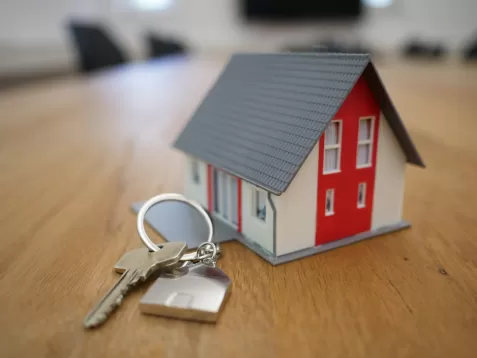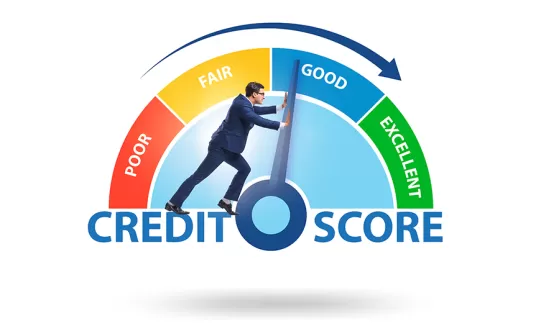Many people delay the idea of buying a home while they’re paying down or trying to completely pay off student debt. But local industry experts believe there are many good reasons to consider homeownership sooner rather than later. Among them: With Nevada being one of the fastest growing states in the country, house prices are anticipated to continue rising, which could put your dream of homeownership even further out of reach if you wait a few years.
“A lot of people think they can’t qualify because they have student debt,” says Legacy Home Loans Branch Manager Marlena Holloway. “But they can talk to a lender and find out what they qualify for now.”
Additionally, experts suggest that real estate is one of the best ways to build wealth. In fact, the U.S. Census Bureau estimates that homeowners’ median net worth is 80 times larger than renters’ median net worth.
Marlena recommends talking to a lender at least three months before you’re planning to start shopping for a home. “They’ll help you figure out how your student debt affects your ability to buy, how much you qualify for and where you could be restructuring or paying down debt to get in a better position,” she explains.
The Ins & Outs of Student Debt
When evaluating whether or not you qualify to buy a home, lenders will look at your debt-to-income ratio — how much you owe compared to how much you earn. Your student loan payments will be considered as part of this debt, with the amount dependent on how much you owe and how your payments are being made.
If you’re already making payments on a student loan, the monthly payment will be factored into your debt-to-income ratio like any other debt.
If your student loan is in deferment, monthly payment amounts used by the lender to calculate debt-to-income ratio will vary, depending on the type of loan you have:
- For conventional loans with Freddie Mac or Fannie Mae, the lender will calculate .5 percent of the balance for the monthly payment. For example, if your balance is $10,000, they’ll estimate a $50 monthly payment.
- If you have an Income-Based Repayment Plan (IBR), the loan owner will dictate the monthly payment that needs to be considered.
One big variable in all of this is if you have veteran status. “Veterans with a 12-month or more deferment don’t have to count the monthly payment in their debt,” Marlena says.
Marlena explains that lenders will look at the different factors affecting potential homebuyers and help them figure out the plan that makes the most sense. “If they don’t qualify for a conventional loan, we can always look at an FHA loan,” she offers as one possibility.
Related: Home is Possible – A Program for Heroes
Creating a Path To Homeownership
Once you better understand what you’re working toward and what challenges might be in your way, you can put together a plan. Here are some ideas to incorporate into that plan.
- Look into first-time homebuyer programs: There are a number of programs designed for first-time homebuyers, including the Nevada Housing Division (NHD) Home Is Possible (HIP) program, which offers interest-free down payment assistance with competitive rates. With the HIP for First-Time Homebuyers program, you could qualify for 4% of the loan total, which can be used for down payment assistance and/or closing costs.
- Create a budget: You’ll qualify for more house if you can decrease your debt or increase your income. Write down how much you make and how much you owe, then figure out where you can cut expenses to pay down debt faster. Some ways to do this might include making extra payments or getting a part-time job. “You want to keep your debt at 45% of your income,” Marlena explains. So, for example, if you earn $35,000 / year, you would want your total debt to be $15,750 or lower.
- Pay down student loans faster: While this might sound like a dream, this HuffPost article shares tips like allocating part of your tax refund to your college debt, or paying every two weeks instead of monthly, and how that could knock months off your loan. Before aggressively paying down student loans, however, you’ll want to consider reducing or eliminating higher interest debt like credit cards or personal loans first.
- Get someone else to pay off your student loans: There are companies, like Fidelity, Aetna and Staples, that offer student loan repayment assistance as part of their employee benefits plans. With Nevada’s current unemployment rate hovering around 4.1%, employers are getting creative with their employment packages, so this could be an item for discussion during your next employment negotiation.
- Work on your credit score: Lenders will look at your credit score to determine whether or not you’re a good risk for a mortgage. Your credit score is determined by a number of factors, including payment history, amount of debt relative to credit limits (try to keep it below 30%), age of credit, recent applications for credit and whether you have more than one type of credit. For the Home Is Possible programs, you need a 640 minimum credit score, so it definitely makes sense to know where you are. You can check your credit score via the Annual Credit Report site.
Related: Here’s the Scoop on Credit Scores
- Consolidate debt: You might qualify for a personal loan that will allow you to consolidate all of your debt into one lump sum with a lower interest rate. This way, you can pay down your debt even faster — as long as you don’t continue to add to it.
- Consider refinancing your student loan: If your student loan is not going down fast enough, you might be able to refinance at a lower interest rate. Refinancing is possible for federal and private student loans, though each lender has their own criteria, so you’ll need to find out what’s involved with your lender.
-
Consider bringing in a co-borrower: A parent, family member or fellow graduate can help you qualify for a home when you might not be able to on your own. “Using their income and credit can help you qualify for more,” Marlena explains. “As long as they don’t already have a lot of debt.”
If you don’t want to buy outright with another person, they could also co-sign for you. It’s important to remember that your co-borrower or co-signer is on the hook for the loan amount, so they’ll need to keep that in mind if they’re planning to buy something of their own in the near future. However, after you’ve owned the home for 12 months, you should be able to refinance and take them off the loan.
There are a lot of moving parts involved in qualifying for a home loan, but you don’t have to do it by yourself. Find a HIP-qualified lender, and let them help you figure out what makes the most sense for you. Don’t let student debt stand in the way of your dream of homeownership!


